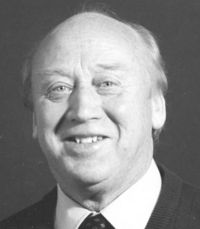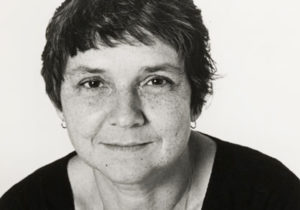We have decided to create the most comprehensive English Summary that will help students with learning and understanding.
Call of the Wild Chapter 4 Summary
The next morning, Francois discovers Spitz missing and Buck covered with wounds. As the dogs are about to be harnessed, Buck trots up to spot that Spitz occupied. Francois brings Sol-leks to the position of leader instead. Buck is furious and springs upon him. He will not let Francois harness the team. But Francois drags Buck away by the scruff of the neck. Sol-leks does not mind giving up the position, but Francois comes back with the club. Buck retreats but then refuses to take his old position. Francois realizes, that he thinks that he has earned the lead position and will be satisfied with nothing less. Buck trots to the lead position and is harnessed in.
Buck forces Pike to carry his share of the load, and he soundly punishes Joe for his bad behaviour. After receiving their orders, Francois and Perrault leave the team in the care of officials, a “Scotch half-breed,” and pass out of Buck’s life for good. The dogs are tired when they reach Dawson, but they are allowed little rest and are soon on their way out with another load. They are treated well, attended to even before the men.
Dave, one of the dogs, becomes terribly ill, but refuses to stop pulling behind the sled. The driver puts sole in his place, meaning to allow him to run easily behind the sled. Dave cannot stand to see another dog doing his work. He runs into the soft snow beside Sol-leks, trying to resume his usual place, is yelping and again attempts to resume his place. Finally, the driver decides it is kinder to allow Dave to pull, for he will die either way. During his final pull, he often falls and is caught in the traces of the sled. The next morning, Dave is too weak to rise. The team is driven ahead some ways, but they cannot ignore the gunshot that rings out. Buck and everyone else know what the shot means.
Call of the Wild Chapter 4 Summary Word Meaning
- Coveted – Greatly desired
- Obdurate – Stubbornly persistent in wrong doing
- Displace – Cause to move
- Comply – Act in accordance with someone’s rules
- Celerity – A rate that is rapid
- Deluge – A heavy rain
- Aspire – Having an ambitious plan
- Monotonous – Sounded
- Bough – Larger branches of a tree
- Potent – Authority
- Resiliency – Ability of a material to return to its original shape
- Prod – Push against gently
- Flounder – Walk with great difficulty
- Remnant – A small part remaining
Call of the Wild Chapter 4 Summary Questions and Answers
Question 1.
State in your own words the departure of Francois and Perrault from Buck’s life.
Answer:
Francois and Perrault’s departure from Buck’s life signals the end of one phase in Buck’s relationship with man. They have been wise and just masters to Buck. Francois weeps over Buck this shows the level of deep respect and care he has towards him.
Question 2.
What did Buck learn in Chapter 4 as stated by “Jack London”?
Answer:
Through the team’s record run, Buck demonstrates his mastery of his work. He has learnt how to work, now to and how to lead a pack. He is not only fit to lead the team, but he is more than fit to survive and thrive in the wild.
Question 3.
What happened to Dave in Chapter 4 ?
Answer:
Dave was a supporting character. He was an experienced sled dog whose work meant a lot to him and preferred to be left alone. The Scotsman removes Dave from the traces putting Sor-leks in his place. Dave was sick, but refused to leave his place at the sled. He insists on dying while pulling the sled. Finally he dies by a bullet, in order to end his suffering.
Question 4.
Why did Perrault and Francois exit from Buck’s life ?
Answer:
In Skaguay, Francois and Perrault become minor celebrities for the record timing of their run. They celebrate for a week’s time, but official order from the government forced them to depart from the town, thereby, leaving Buck and his man behind. Francois weeps over Buck as he and Perrault exit Buck’s life “for good”.
Question 5.
State in your own words, Buck’s dream of a primitive man.
Answer:
Buck’s dream of a primitive man shows that his memory is receding into a primeval past, but also that he is looking for something more in a human master, an equality and co-operation, that is impossible when he works for humans. Buck begins to have visions of a “hairy”, “short legged” cave man, clad in animal skins, squatting by the fire.
Extract Based Questions
Question 1.
Read the extract given below and answer the questions that follow:
It was a record run. Each day for fourteen days Perrault and Francois threw chests up and down the main street of Skagnay and mere deluged with invitations to drink, while the team was the constant centre of a worshipful crowd of dog-busters and mushers.
(i) What did Buck see in the fire?
(ii) Why Buck did not want to go back in his old harness?
(iii) Describe the attack faced by Buck in the above chapter?
(iv) What did Buck see in his dreams ?
(v) What happened in the fight between Buck and Spitz?
Answer:
(i) Buck loved to lie near the fire. Sometimes he thought of Judge Miller’s big house. He often remembered the man in the red sweater, the death of Curly, and the fight with Spitz. He also dreamt of a short and hair like man running through the woods.
(ii) Buck did not want to go back into his old harness, because he wanted to be in front of the pack. He wanted to be the leader. In fact, he possessed leadership qualities.
He was better than most, superior attributes. He received the compliment that he was worth $ 1000.
(iii) After a long trip of 14 days, the sled-dogs including Buck, were very exhausted. Some four or five scores of starving huskies attacked the camp. The dog team found shelter from their attackers in the forest.
(iv) When Buck crouched, blinking dreamily, instead of the cook he saw a different man there. The man uttered strange sounds and seemed too afraid of the darkness into which he gazed.
(v) After the attack of starving huskies in the woods, Buck was attacked by Spitz. Spitz was winning until Buck broke Spitz’s front legs. He ended up breaking both of them. When Spitz went down, the dogs from the villages, sled team finished him. Buck won finally.
Question 2.
Read the extract given below and answer the questions that follow :
It was a hard trip, with the mail behind them, and the heavy work wore them down. They were short of weight inpoor condition when they made Dawson and should have had a ten days’ or a week’s rest at least. But in two days time they dropped down the Yukon bank from the Barracks, loaded with letters for the outside. The dogs were tired, the drivers grumbling, and to matters worse, it snowed every day.
(i) What was the amount of food that was given to the sled dogs?
(ii) How does Buck perform when he succeeds Spitz as lead dog?
(iii) What condition were the dogs in when they arrived at Skagway from Dawson?
(iv) What happened to Dave in ‘the Call of the Wild’?
(v) What did Buck do in the end ?
Answer:
(i) The incompetent humans did not know that they had too many dogs. Sometimes they overfed them and at times they underfed them. Charles and Hal had no idea what they were doing. To them it made sense to have as many dogs they could get.
(ii) In chapter 4 of the novel, ‘the Call of the Wild’, written by Jack London, Buck performs exceedingly well when he succeeds former lead dog, Spitz. At first, the drivers wanted to use another lead dog, but Buck refuses to allow it and finally succeeds.
(iii) The condition of the dogs was miserable, as the dogs and their drivers arrived at Skagway after a thirty day trek from Dawson. They were exhausted and down in weight, because they had not had a proper rest as well as proper food.
(iv) Dave was very weak and fell repeatedly in the traces, when they reached Cassiar. Since he was to die anyway, he wanted to die content in the traces. He howled mournfully and took his last breath.
(v) Buck made no effort. The last whip bit into him again and again, but he neither whined nor struggled. Buck had made up his mind nor to get up. Hal exchanged the whip for the club, and then suddenly without warning, John Thornton sprang upon him.

